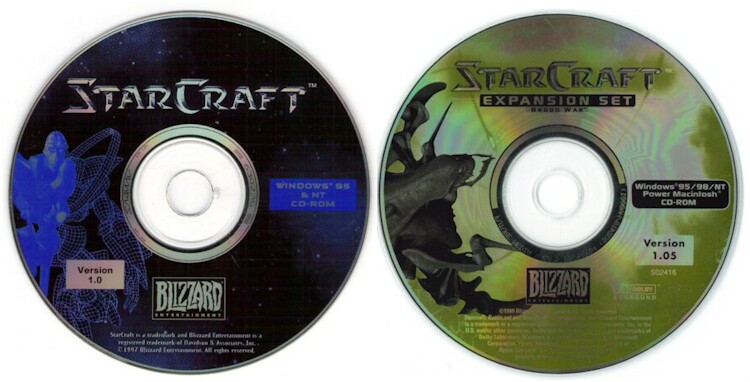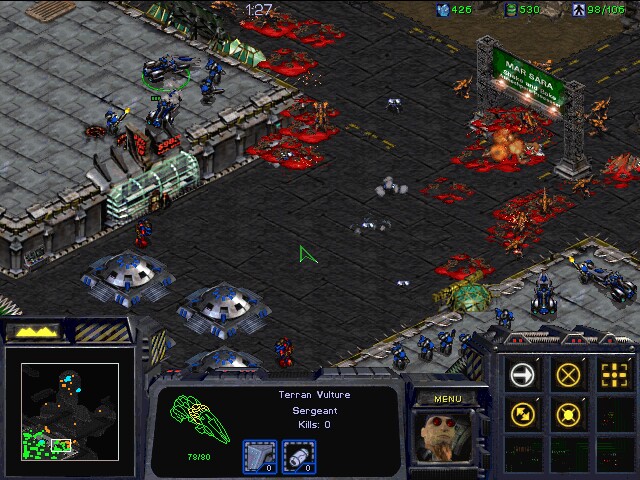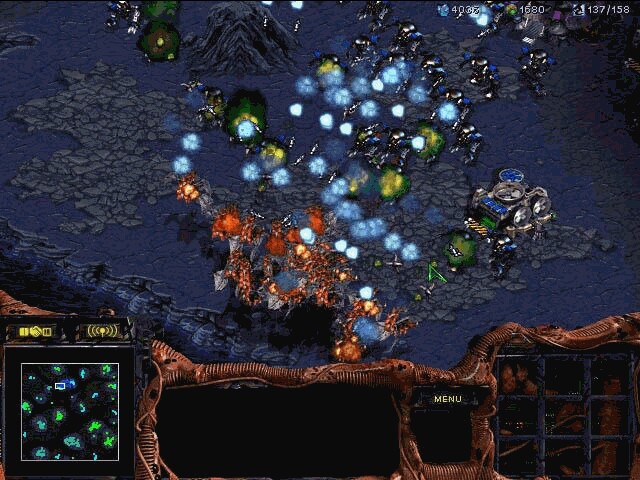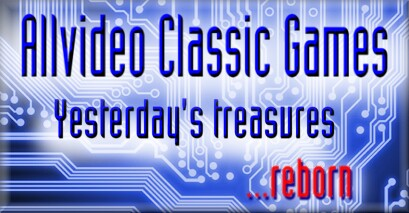
Actual Game
Starcraft 1 and
|
The Games
Starcraft
To appreciate Blizzard’s achievement in producing a game as good as StarCraft, you have to imagine any other company doing what Blizzard did. This would include 1) releasing a real-time strategy game six months after everyone agreed RTS had peaked 2) sticking with 2D graphics and sprites at a time when everyone agrees only 3D acceleration and polygons get it anymore 3) refusing to be bullied into releasing said game early, no matter what the pressure and 4) last but not least, in the face of perhaps the most hype ever generated about any computer game, producing a game entirely lacking in the sort of gimmickry that too often passes for innovation these days, but which rather focuses on gameplay, game balance, personality and fun. Starcraft doesn’t do anything shockingly new, but Starcraft takes everything good about real-time strategy and makes it better.
At first I thought the game was just OK—the graphics are nice for the late 90s, but not the greatest, and the interface is easy, and the Terrans have got a lot of personality, but so far nothing has sent me into paroxysms of joy. Then came my first Zerg rush. Tasked with defending my base while I awaited evacuation, I was enjoying picking off the occasional Zerg mob. Then, with time ticking down, millions of Zerg—inhuman, insectoid-like killing machines—came bounding and slithering and creeping onto my screen and into my defenses. It was something. It was a spectacle. But mostly it was a rush, one of my most memorable gaming moments, and I’ve been hooked ever since. And OK, there weren’t millions of Zerg, but man, it sure did seem like it--and that any game that can create that sort of illusion has got some serious mojo workin’ for it.
In the campaign, you’ll get the opportunity to play each of the three races—Terran, Zerg, and Protoss. At first I was somewhat disappointed by the brevity of the first campaign, in which you play the Terrans—only ten missions, and upon completing it I felt like there were still a lot of loose ends to be tied up. So I started the Zerg campaign, and I was surprised and pleased to see that the narrative I began in the Terran campaign continued--but this time from the Zerg point of view. This is a very nice and original touch, and emblematic of the care and thought Blizzard has put into every aspect of this game. One of the best things, is, of course, the diversity of the three races. One of the big complaints about Warcraft II was that the units for Orcs and Humans were essentially the same. That’s not the case in Starcraft. Terrans are the Billy Bobs of the Milky Way—they like to shoot stuff up a lot, and their arsenal will be the most familiar to players—tanks, planes, robots, battlecruisers. They have, as all the races do, some really nifty special units—like science centers, which can detect cloaked units or irradiate enemies, and Ghosts, scout-like units that can sneak into unwary enemy installations and target nukes. The Zerg are much like the aliens from the movie Alien or Tyranids from Warhammer 40K—they’re big ugly insects that obey the overmind, excell in hand-to-hand combat, and can build their wonderfully disgusting bio-buildings only on a weird carpet of excretion called "creep." The Protoss are the most advanced of the races, beings that have advanced psionic powers, wield energy shields, and have lots of nasty tricks, like teleportation and casting nasty spells, up their sleeves. They’re also no pushover in a toe-to-toe fight; the Protoss zealot is by far the toughest basic unit of any army, and the Protoss Archons are both beautiful and utterly deadly.
All of these races are very, very, different, but—and here I take my hat off to Blizzard—none of them is dominant. All races have strengths and weaknesses, and playing through the campaign is a great way to get a feel for all of them. This balance extends not just to the races, but also to the units within each race’s army. No one unit will win the battle for you. Unlike Warcraft, you can’t just launch the equivalent of an ogre rush and expect to win. All the units are useful—even the lowly Terran marine is one tough hombre, especially when bunkered up—but none is overpowering. Terran battlecruisers are powerful, but if you send a bunch of them unsupported into your enemy’s base, they’re history.
Some have complained about the limited number of units in Starcraft, especially when it is compared to some of the other RTS games released this year, but frankly I’ve found every unit in Starcraft to useful, unlike many of the units in other games.
The bottom line with Starcraft is that it’s just plain fun, and you can’t fake that. No matter how much money you pour into a game, no matter how flashy the graphics are, no matter how innovative the interface or features, if the game isn’t fun, it’s not a good game. I don’t know how Blizzard does it, but every game they make is fun, and Starcraft is no exception.
Brood War
Brood War brings several changes to the game, altering some gameplay aspects of the game, the most important change being the addition of new units.
The Terrans receive the Valkyrie, a craft with air-to-air fighting capabilities. They also obtain the Medic, which can heal all non-mechanic units and, through upgrades, can use the Restore (remove all ailments on a unit) and Optical Flare (reduce the sight range of an enemy unit to 1) powers.
The Zergs receive the Lurker, obtained after mutating an Hydralisk, which can, and actually must, burrow to attack. They also gain the Devourer, after mutation of a Mutalisk, an air-to-air unit, whose acid shots have notably the specificity of temporarily lowering the enemy defense, allowing other units to do increased damage.
The Protoss receive the Corsair, an air-to-air unit, which has access to the Disruption Web power (which, once cast, prevents targeted enemy units from firing outside of the web). The Dark Templars, already seen in the original StarCraft are now a producable unit. Their main strength lies in their permanent cloaking, allowing them to deliver their strong close combat attacks unharmed. Additionally, in the same manner as two Templars can be merged as an Archon in StarCraft, two Dark Templars can now be merged to obtain a Dark Archon. A Dark Archon has access to several powerful powers: Mind Control (giving permanent control of the targeted unit), Maelstrom (temporarily rendering all non-mechanical units within the target area unable to do anything) and Feedback (removes from a target unit the amount of energy it has available for special powers and inflicts it this amount as physical damage).
Besides the new units, some units already featured in StarCraft can now be upgraded in certain areas. For instance, the Terran Goliath can have the range of its ground-to-air missiles be tremendously increased. Similarly, the Zerg Ultralisk can now receive speed and armor upgrades.
Other changes include a better AI and some alterations of the cost of certain units.
Three new campaigns are available. In order, a Protoss campaign featuring 8 missions, a Terran campaign also featuring 8 missions and a Zerg campaign comprising 10 missions (plus a bonus mission if some requirements are met in mission 9).








